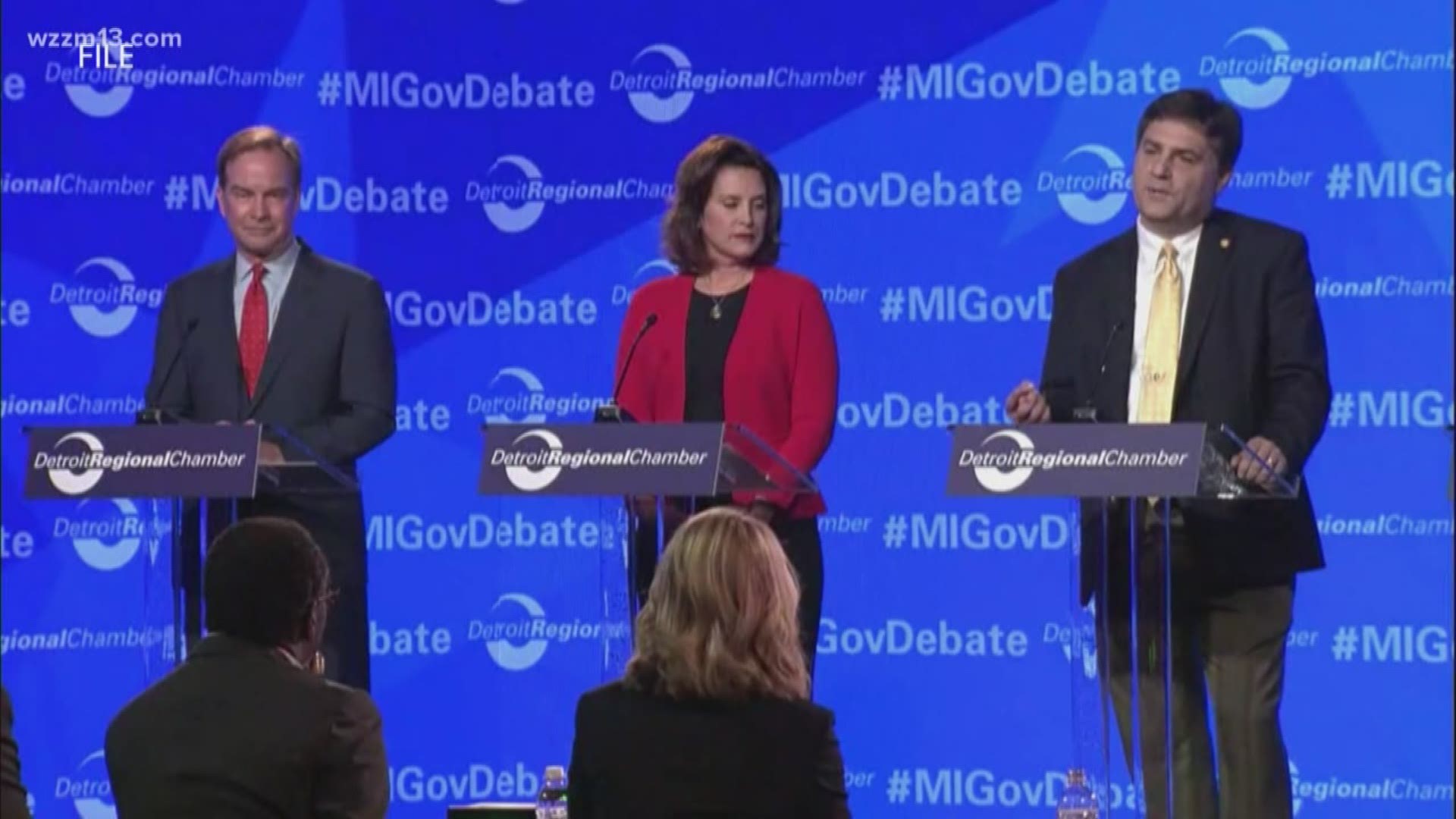GRAND RAPIDS, Mich (WZZM) — Even though we're less than two months away from the Michigan primary, nobody really has a firm grip at this moment in time who's in the lead at this point in time. One of the main reasons for that is a lack of polling.
That's particularly true on the Democratic side. Three candidates, Gretchen Whitmer, Abdul El-Sayed and Shri Thanedar, are competitive in the race, yet there hasn't been any polling done in weeks to show who may be in the lead.
On the Republican side, Attorney General Bill Schuette has led for most of 2018 by double digits over challengers Lieutenant Governor Brian Calley and Sen. Patrick Colbeck but there are no recent independent studies showing whether Schuette's kept the lead through multiple debates.
Several pollsters told us one of the reasons for the lack of available numbers is the rising cost of doing the polling.
"The main reason has been the shift away from landline telephones, combined with the legal restrictions on calling cellphones, and the difficulty in matching cellphone to voter registrations," Practical Political Consulting founder Mark Grebner wrote in an e-mail to us. "It used to be that for $2000, you could put together a pretty reasonable bare-bones poll. Now, if you want to include a representative sample including cellphones, you'll find yourself spending at least five times that much."
Media organizations are also reluctant to spend the money to poll during what some would consider "down time" in the race, even though we're within two months of the primary.
"Polling is getting more expensive and more difficult to do and as that happens media clients are not going to want to pay the amount needed to go after younger voters on cell phones," Chairman of Mitchell Research & Communications Steve Mitchell said. "I think the amount of polling should increase now that the election is getting closer."
"The long and short of it is that there has been significantly less money dedicated for political polling thus far this year," Kelly Sullivan from EPIC-MRA wrote. "I suspect that most media outlets are hanging on to their somewhat limited dollars until either closer to the Primary election, or to use for the period between the August Primary and the November General."
Pollsters in Michigan have an opportunity to improve after an awful 2016 campaign cycle. The polls were way off on the state's Democratic primary when Vermont Sen. Bernie Sanders won the state. Hillary Clinton was expected to win by as much as 30 points.
The polls also, generally, got it wrong in the 2016 November election as President Donald Trump, unexpectedly won Michigan.
The latest independent polls on the Democratic side for this primary come from late April 2018 when Thanedar was spending millions to advertise his candidacy. He was leading the polling at that time, though much has developed in the race over the last few weeks that has not been surveyed.
Perhaps the lack of polling is keeping all the candidates on both sides in the race. The experts agree polling can certainly influence people who may be undecided and the lack of numbers will push voters to decide closer to August.
Several of the pollsters we touched base with told us they will have new numbers here within the next couple of weeks.
►Make it easy to keep up to date with more stories like this. Download the WZZM 13 app now.
Have a news tip? Email news@wzzm13.com, visit our Facebook page or Twitter.

